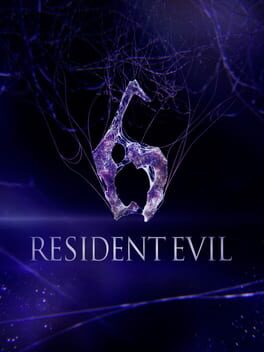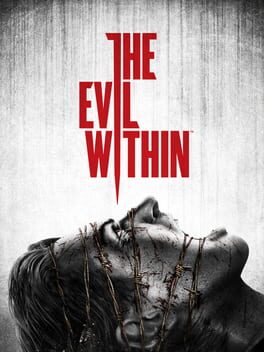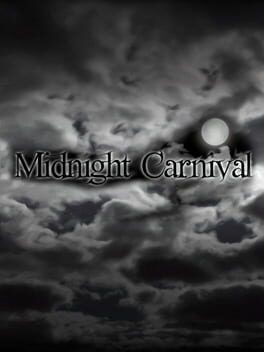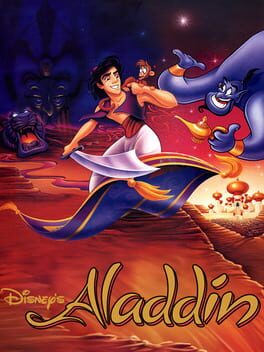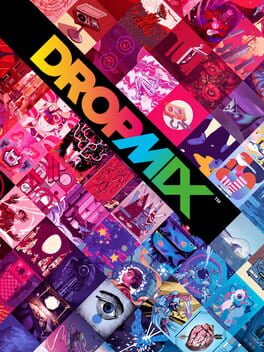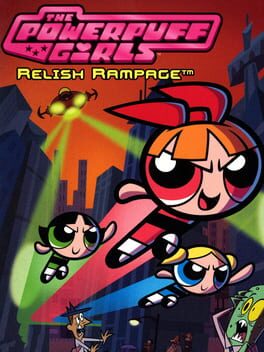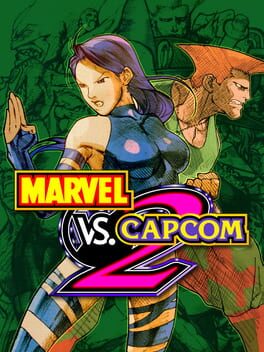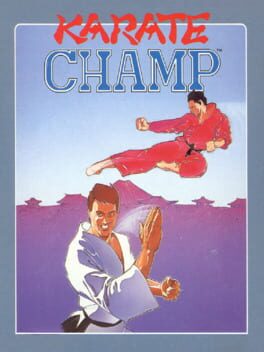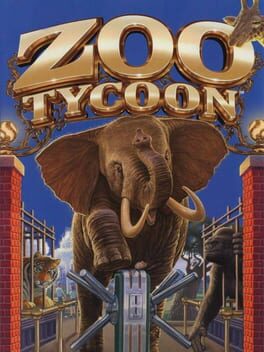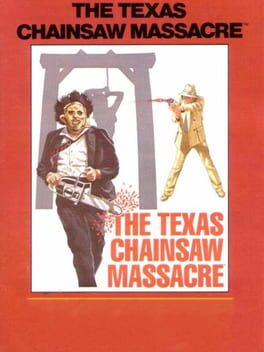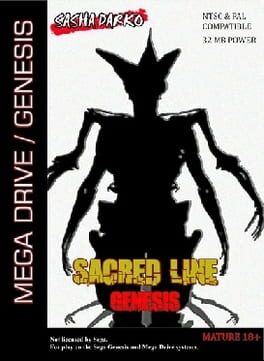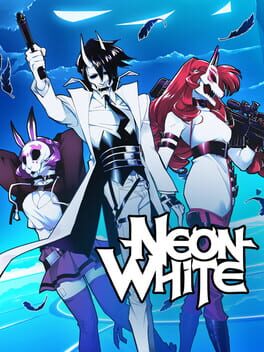95 Reviews liked by Ghenry
Resident Evil 6
2012
The Evil Within
2014
A unique, experimental approach to the genre that serves to severely limit the player and their capabilities In order to push a different method of play, gone are the often superhuman capabilities of your average Survival Horror protagonist that juxtaposes what the genre wants to be, you can’t QTE suplex zombos to their death, hold Immense amounts of resources, or even sprint for long. Your character Is a run-down, alcoholic detective who can (Initially) only hold 10 bullets at once, sprint for 4 seconds and has messed up aim. So obviously you can’t shoot everything to death and have to think up of alternative methods of dealing with enemies to progress, though sadly the game Isn’t that In-depth so you always rely on the same approaches, It’s either the crossbow mines or burning up multiple enemies together with matches, trap’s don’t make much of an appearance for enemy encounters outside the first couple of chapters and that’s because Instead of doing more tight, tense big playground levels where you’re allowed a lot of approaches like the village, the game opts for more generic RE style enemy rushes and the level design accommodates them too. I found them decent to play but It’s a shame that the game doesn’t stick to what works best for It because Mikami has the RE blues.
Visually the game Is nothing short of exhilarating, It Is easily up there as one of the best looking 7th gen games and I was fond of how It transitions you from one level to the next without any explanation whatsoever, like being rushed by a sea of blood then waking up In another place, I found that enhances the mystery and makes It so the game Is free to do whatever It wants visually and the result Is quite captivating.
Visually the game Is nothing short of exhilarating, It Is easily up there as one of the best looking 7th gen games and I was fond of how It transitions you from one level to the next without any explanation whatsoever, like being rushed by a sea of blood then waking up In another place, I found that enhances the mystery and makes It so the game Is free to do whatever It wants visually and the result Is quite captivating.
Midnight Carnival
2016
Disney's Aladdin
1993
Resident Evil 4
2023
Had to sit on this one for a while.
___________________
Played on Hardcore
___________________
I’m wholly disappointed by many things this ended up doing, it changed too little in places and too much in others, the game’s biggest flaw is still there, there’s a significant decrease in overall quality between Village, Castle and Island while the Castle had some rather major improvements, half of it was still the same ol’ badly designed mess and I would even say they fare worse in 4R, and that’s what I meant by “changed too much”, for some god forsaken reason, someone at Capcom decided it’s a good idea to give 2R’s reticle focusing mechanic, one that was crafted for a more meticulous, slow, low enemy count game and give it to 4R, which happens to be the complete opposite of that, so now the game is not as snappy and responsive as the original and ends up In a really awkward place at best, while it sinks to greater low’s than the original in the worse sections of the game.
___________________
Played on Hardcore
___________________
I’m wholly disappointed by many things this ended up doing, it changed too little in places and too much in others, the game’s biggest flaw is still there, there’s a significant decrease in overall quality between Village, Castle and Island while the Castle had some rather major improvements, half of it was still the same ol’ badly designed mess and I would even say they fare worse in 4R, and that’s what I meant by “changed too much”, for some god forsaken reason, someone at Capcom decided it’s a good idea to give 2R’s reticle focusing mechanic, one that was crafted for a more meticulous, slow, low enemy count game and give it to 4R, which happens to be the complete opposite of that, so now the game is not as snappy and responsive as the original and ends up In a really awkward place at best, while it sinks to greater low’s than the original in the worse sections of the game.
DropMix
2017
Karate Champ
1984
Zoo Tycoon
2001
One of the rawest games ever made with a style evocative of the exploitation violence of the original. What is a better mediation on violence in media the having you literally play as a killer? No story, no defense, no humanity just a bleak abstract apocalypse of violence. The logical endpoint of gaming.
Sacred Line Genesis
2015
This is quite possibly one of the worst visual novels you could ever play but I'd be lying if I said it also wasn't absolutely hilarious to read through it much like one would do with a bad creepypasta. No joke the developer couldn't even be bothered to program RNG to simulate rolling dice, instead if you read the manual there's a link given to a dice roll generator which you're supposed to use then pick one of multiple options ingame based off the roll you got.
Disney's Aladdin
1993
Neon White
2022
The greatest strength of Neon White is how exceptionally laid out its core design is, and how its gameplay loop is expanded upon from world to world in a surprisingly beefy campaign if you’re trying to get Ace Medals (Platinum Relics, basically) through it. Almost every one of the new chapters introduces a new gimmick with a new kind of gun and its two uses, feeling like it makes the most out of whatever power a level gives you.
As the game goes on, levels have you hot swapping between these constantly, and it feels like a great amount of thought, effort and detail went into to making every single one feel distinct, in a similar way to games like the first two Super Monkey Balls or Donkey Kong (1994). I do think some levels can stretch the length quota; any stage that go on for 2+ minutes can feel aggravating to replay, but the majority are able to keep things interesting. Often more than certain main stages, I really got a lot from the side challenges from each of your companions, and how these stages operated in different ways that let their distinct personalities show without incessant painful dialogue. In particular, I really liked Yellow’s penultimate stage and how it felt like the game briefly became a boomer shooter.
Although level progression can be enjoyable when everything clicks, some stages force styles of movement progression on you that can turn the method of controlling into an aggravating stress test. It’s very easy for the 360 turns the game forces you to do for level optimization to ruin your mouse position when trying to say, circle around a tall structure, see the sky after using the stomp power that faces you toward the ground, or rocket launch up a building to be met with a stuck-out structure covering your camera. I can't imagine playing with a controller for lacking precision aim but even with a mouse it was incredibly unfun to have my view wrecked by being unable to move around in a circle without straight up lifting the mouse up, which would cause an immediate reset if it got stuck during a run. The final gift sequence felt less like a fun challenge and more like a tedious slog when dealing with a 360-tower scale at the end of a 2-minute level gauntlet where a single screwup meant doing the entire stage all over again. I feel similarly in regard to the second boss fight; the first and the final one do compelling work to translate the level moment to moment feel into a run that feels quick even if you lose, despite the wimpy finishers, but the second boss got so overly indulgent with the scripted sequences that the slight chance of screwing up in the middle of that 4-5 minute battle felt painful every time I felt like I wanted to restart.
As many others have pointed out, it's really the writing that's the most able to turn heads. To its credit, it’s able to be skipped almost in its entirety and doesn’t directly affect the strong core gameplay level progression I noted above. But in a way it affected my attitude through it, because every time I power through a new world, the story dialogues meant to break it up only show me how thoroughly uncool the character I’m playing is as a person. It feels like there’s a fundamental disconnect between euphoria for mastering a stage and White’s personality compilation of referential animeisms outside of it, despite Steve Blum’s best efforts.
It’s no secret that Sonic games have been wildly inconsistent, often for mechanical reasons, but one place I think most of them succeed in is properly communicating the spectacle, fun and thrilling sequences a player is meant to be experiencing in the stages through Sonic as a character, be it the expressive sprites of the 2D titles or his modern version’s trick posing and light comments chirped from time to time. They connect the intention between what personality the character is feeling versus what you, the player, are meant to feel while playing that just doesn’t exist in Neon White because of how divorced those sides of his character are.
Yet, for all the writing’s incessant need for forced references, incel humor (there’s a blatantly obvious 2019 Joker line, flat asses, and S-tier insults among other things) and all the tediously tepid character tropes that have me rolling my eyes even in actual anime, it’s the constant emoticons that deal the killing blow. They’re used so often, even in scenes trying to be emotional, from pretty sparkles to overly saturated blushing and depression lines that just makes any dialogue they’re paired with that much more performative. There’s even the very literal throwing up emoji, something that’s not even an anime effect so I’m genuinely baffled it’s present.
When it comes to weeaboo style writing goes, it's bordering the same level as RWBY, with worse jokes and slightly better thematic cohesion. Just like the first two seasons of that show, the best parts are, ironically, when the action director oversees the story. The side quests for your companions communicate their personalities in a way far more suitable to Neon White’s status as a video game than any dialogue unlock (which feels like if you gave an AI a Danganronpa script). There’s a lot more meaningful emotion to glean from your very first sequence of finding one of Green's gifts, conveying a creepy, yet sorrowful mood purely from gameplay, than almost any dialogue sequence where the writing is either comically bad or just borderline nothing (any conversation with the cat characters comes to mind).
The end of Neon White left me satisfied with how well everything had progressed by that point on a structural level just as much as relieved I’d never have to endure its unfun execution to justify its concept. But dammit, I felt something almost the entire time. And is that not the purpose of art, to make you want to feel, even when it’s intensive negative emotion? Neon White is a pendulum swing of a game I think succeeds at being a well-made and lastingly developed experience on numerous design levels despite its off-character cohesion and the incessant annoyance of its skippable writing. The tightly put together building blocks alone make it a recommendation, but it’ll be up to others to make the most of what’s surrounding them.
As the game goes on, levels have you hot swapping between these constantly, and it feels like a great amount of thought, effort and detail went into to making every single one feel distinct, in a similar way to games like the first two Super Monkey Balls or Donkey Kong (1994). I do think some levels can stretch the length quota; any stage that go on for 2+ minutes can feel aggravating to replay, but the majority are able to keep things interesting. Often more than certain main stages, I really got a lot from the side challenges from each of your companions, and how these stages operated in different ways that let their distinct personalities show without incessant painful dialogue. In particular, I really liked Yellow’s penultimate stage and how it felt like the game briefly became a boomer shooter.
Although level progression can be enjoyable when everything clicks, some stages force styles of movement progression on you that can turn the method of controlling into an aggravating stress test. It’s very easy for the 360 turns the game forces you to do for level optimization to ruin your mouse position when trying to say, circle around a tall structure, see the sky after using the stomp power that faces you toward the ground, or rocket launch up a building to be met with a stuck-out structure covering your camera. I can't imagine playing with a controller for lacking precision aim but even with a mouse it was incredibly unfun to have my view wrecked by being unable to move around in a circle without straight up lifting the mouse up, which would cause an immediate reset if it got stuck during a run. The final gift sequence felt less like a fun challenge and more like a tedious slog when dealing with a 360-tower scale at the end of a 2-minute level gauntlet where a single screwup meant doing the entire stage all over again. I feel similarly in regard to the second boss fight; the first and the final one do compelling work to translate the level moment to moment feel into a run that feels quick even if you lose, despite the wimpy finishers, but the second boss got so overly indulgent with the scripted sequences that the slight chance of screwing up in the middle of that 4-5 minute battle felt painful every time I felt like I wanted to restart.
As many others have pointed out, it's really the writing that's the most able to turn heads. To its credit, it’s able to be skipped almost in its entirety and doesn’t directly affect the strong core gameplay level progression I noted above. But in a way it affected my attitude through it, because every time I power through a new world, the story dialogues meant to break it up only show me how thoroughly uncool the character I’m playing is as a person. It feels like there’s a fundamental disconnect between euphoria for mastering a stage and White’s personality compilation of referential animeisms outside of it, despite Steve Blum’s best efforts.
It’s no secret that Sonic games have been wildly inconsistent, often for mechanical reasons, but one place I think most of them succeed in is properly communicating the spectacle, fun and thrilling sequences a player is meant to be experiencing in the stages through Sonic as a character, be it the expressive sprites of the 2D titles or his modern version’s trick posing and light comments chirped from time to time. They connect the intention between what personality the character is feeling versus what you, the player, are meant to feel while playing that just doesn’t exist in Neon White because of how divorced those sides of his character are.
Yet, for all the writing’s incessant need for forced references, incel humor (there’s a blatantly obvious 2019 Joker line, flat asses, and S-tier insults among other things) and all the tediously tepid character tropes that have me rolling my eyes even in actual anime, it’s the constant emoticons that deal the killing blow. They’re used so often, even in scenes trying to be emotional, from pretty sparkles to overly saturated blushing and depression lines that just makes any dialogue they’re paired with that much more performative. There’s even the very literal throwing up emoji, something that’s not even an anime effect so I’m genuinely baffled it’s present.
When it comes to weeaboo style writing goes, it's bordering the same level as RWBY, with worse jokes and slightly better thematic cohesion. Just like the first two seasons of that show, the best parts are, ironically, when the action director oversees the story. The side quests for your companions communicate their personalities in a way far more suitable to Neon White’s status as a video game than any dialogue unlock (which feels like if you gave an AI a Danganronpa script). There’s a lot more meaningful emotion to glean from your very first sequence of finding one of Green's gifts, conveying a creepy, yet sorrowful mood purely from gameplay, than almost any dialogue sequence where the writing is either comically bad or just borderline nothing (any conversation with the cat characters comes to mind).
The end of Neon White left me satisfied with how well everything had progressed by that point on a structural level just as much as relieved I’d never have to endure its unfun execution to justify its concept. But dammit, I felt something almost the entire time. And is that not the purpose of art, to make you want to feel, even when it’s intensive negative emotion? Neon White is a pendulum swing of a game I think succeeds at being a well-made and lastingly developed experience on numerous design levels despite its off-character cohesion and the incessant annoyance of its skippable writing. The tightly put together building blocks alone make it a recommendation, but it’ll be up to others to make the most of what’s surrounding them.
